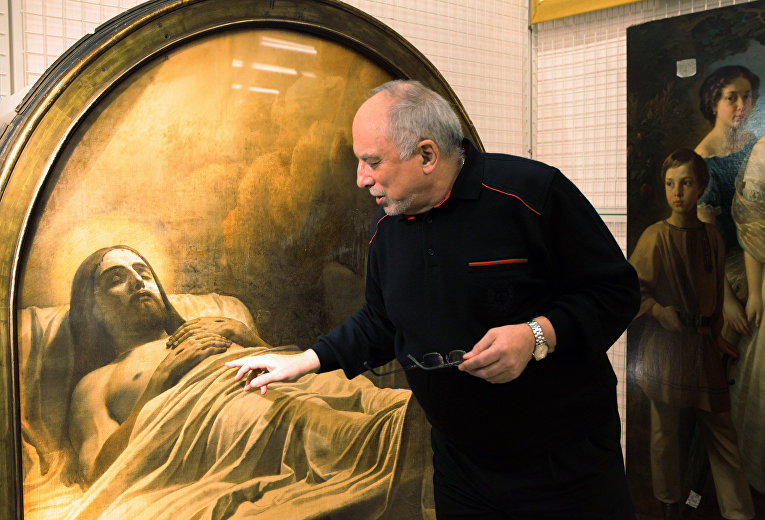MOSCOW, December 19 (RAPSI, Nikita Shiryayev) – The Supreme Court of Russia on Thursday granted a cassation appeal filed by prosecution against lower courts’ rulings to return the painting by prominent artist Karl Briullov entitled ‘Christ in the Sepulcher' to German collector Alexander Pevzner, RAPSI reports from the courtroom.
The court thus changed rulings made by the Vyborg City Court and the Leningrad Regional Court and ruled out an order to return the painting to Pevzner and his wife.
A prosecutor in his appeal claimed that in the lower courts’ rulings there was no confirmation that the painting belonged to the spouses. According to the prosecutors, documents submitted to the Russian Museum said that Pevzner’s parents-in-law were the owners of the art piece.
Pevzner’s lawyer Maxim Krupsky in turn submitted written representations by Lyudmila Belyakova, the collector’s mother-in-law, saying that she was never an owner of the painting as well as her deceased husband.
In 2003, Pevzner brought the painting he owned into Russia via the customs station in Vyborg in the Leningrad Region. Even though it was a cultural property, Pevzner did not declare the masterpiece, according to investigators. The collector was charged with smuggling.
In November 2013, the Vyborg City Court in the Leningrad Region dropped charges against the German citizen as the statute of limitations had expired. However, the court ruled to confiscate the painting from Pevzner and ordered its transfer to the Russian Museum in St. Petersburg.
In 2014, the Leningrad Regional Court overturned the lower court’s ruling in part and returned the piece of art to its owner. In 2015, the decision was upheld.
In April 2016, the Supreme Court of Russia reversed the Leningrad Regional Court’s ruling and ordered the forfeiture of the painting under the Article 81 of the Criminal Procedure Code which envisages that crime instruments belonging to the accused must be confiscated, transferred to the relevant institutions or destroyed.
Pevzner has filed a complaint with the Constitutional Court of Russia challenging the Criminal Procedure Code’s provisions allowing to forfeit objects of art if they are declared material evidence.
In March 2017, the Constitutional Court held that the painting seized from Pevzner may be returned to him only after he is acquitted. The court ruled to review all rulings in the case and to offer a choice to the collector: either he agrees to cancellation of criminal case and loses rights to the painting or keeps the case ongoing, looking forward to the sentence, whatever it may be.
In June 2017, Presidium of the Russian Supreme Court overturned a ruling on confiscation of the painting from Pevzner. Thus, the painting was to be returned to Pevzner, his lawyer Maxim Krupsky told RAPSI. The painting smuggling case against the collector was ordered to be reconsidered, the court held.



